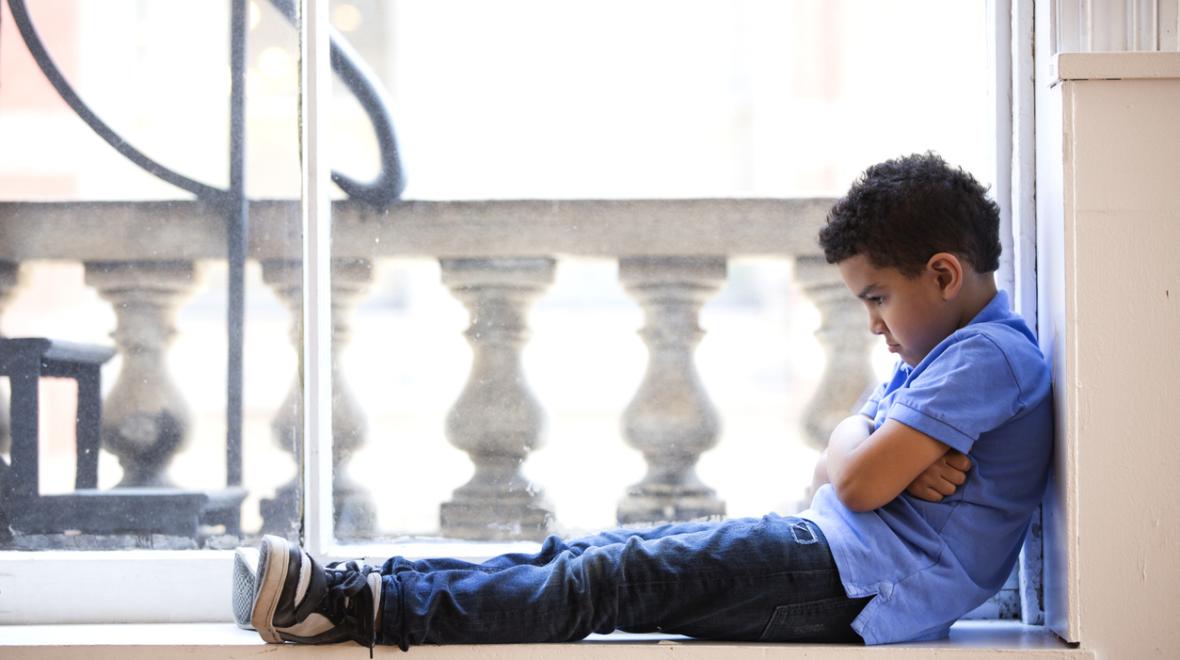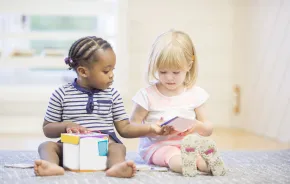
Photo:
iStock
Powerlessness and learned helplessness
Some people will do anything to avoid driving if their last experience was a disaster. Others will avoid certain social gatherings because they never have anything to say. Others will not apply for a promotion because they just know they’ll never get selected.
Our past experiences influence our behavior, and when those experiences have been consistently negative, we can adopt what has been described as learned helplessness.
Learned helplessness is a condition in which a person suffers from a sense of powerlessness, feeling as though they will fail before they even try. Unfortunately, this behavior is quite common in childhood.
Signs a child has internalized learned helplessness:
- Persistent pessimism about their performance
- Expressing belief that they will fail before even beginning
- Exerting minimal effort
- Lacking motivation and purporting to “hate school”
- Rarely asking for help, believing that asking for help will change nothing
- Lacking confidence in abilities
- Focusing on weaknesses
- Taking a persistently passive approach to almost everything
Understanding the origins of learned helplessness
The concept of learned helplessness can be traced back to the work of neurologist and physiologist Ivan Pavlov, the father of classical conditioning. Pavlov’s famous experiment showed that dogs could be trained to associate the sound of a bell (a conditioned stimulus) with food (an unconditioned stimulus), causing them to salivate even when no food was present. This groundbreaking discovery laid the foundation for understanding how humans develop responses like fear and anxiety.

Building on Pavlov’s work, psychologist Martin Seligman and his colleagues developed the theory of learned helplessness through experiments with dogs, demonstrating that when individuals perceive a situation as hopeless, they may become passive and believe they cannot change their circumstances. Their own well-documented experiment with canine subjects provided proof that learned helplessness — that is, the belief that one cannot get out of a situation perceived as hopeless — exists.
Helplessness in children is learned
Ever since those studies determined that feelings of helplessness are learned, other researchers interested in the subject have come to similar conclusions.
In one study, researchers sought to understand how failure would affect students’ future performance. Children were divided into two groups and given the same test, the only difference being that the first group began with extremely difficult questions then proceeded to the easiest questions, and the second group began with the easiest questions before proceeding to the most difficult ones.
The researchers found that the students who had begun with the most difficult questions performed worse on the section with the easy questions, possibly because the hard questions they had begun with led them to doubt their abilities.
Science has shown that negative experiences affect behavior and performance, and often lead to feelings of helplessness. Worse, this state of learned helpless is common among children and can persist into adulthood if they do not learn to change how they respond to failure.
Neglect and special needs can contribute to learned helplessness
Learned helplessness occurs after repeated negative experiences. This explains why the condition is common among children raised in difficult family contexts. For example, a child who is accustomed to being ignored (due to neglect or abuse) learns not to ask for help.
It is also frequent among children with learning differences or those who are hyperactive or lack the ability to concentrate. This is because children who repeatedly meet with failure may learn to view themselves as incapable of success and thus give up.
But there is good news: Learned helplessness is just that, a learned behavior, and therefore it can be unlearned.
Four tips for raising capable kids

1. Help your child develop an optimistic explanatory style
“Is the glass half-empty or half-full?” is a common expression thought to help determine whether someone has an optimistic or pessimistic disposition. As it turns out, how your child mentally explains to themself the events that happen in their life has an impact on how they view and react to those events. If your child often views the events in their life as beyond their control, they learn that there is not much they can do to change them.
However, if they have an optimistic explanatory style, they know that while they may not necessarily control the things that happen in life, these experiences are simply temporary setbacks that will pass.
An easy way to help your child develop a positive explanatory style is to adopt and employ one yourself. Think of how you react to the unexpected events in your life; do you teach your child to develop a pessimistic or an optimistic outlook to life?
2. Help your child understand the link between effort and success
In her book “Mindset: The New Psychology of Success,” Carol Dweck, Ph.D., explains that a child’s perception of failure has an impact on their future behavior. Helping your child develop a growth mindset means teaching them that effort can improve performance.
You can help your child adopt a growth mindset by encouraging them to reflect on what they can do in the face of failure. You might ask your child:
- What else can you try?
- What other strategies can lead to the results you seek?
- What can you start doing to ensure that you get the results you want next time?
Your child needs to know that they are responsible for their results and that their behavior (adopting appropriate revision strategies, asking for help, revising regularly instead of cramming at the last minute, playing their musical instrument for a few minutes every day, etc.) largely determines success.
Telling your child that you know they are capable of success is rarely enough. Remember that they need to know and apply explicit strategies that will lead to that success.

3. Help your child focus on their strengths
Children struggling with learned helplessness are caught in a vicious cycle. They repeatedly fail and therefore learn to view failure as inescapable. But all children have strengths, and facilitating the discovery of those strengths can help them overcome feelings of hopelessness and powerlessness.
Take a moment and observe where your children’s strengths lie: What do they like doing? Where are their talents? When are they happiest? When do they show the most focus and concentration?
Show your child that they are capable of success.
4. Multiply your child’s opportunities for success
In the experiment cited earlier, the children who began with the difficult questions learned to doubt their abilities and performed worse on the easier questions.
If your child repeatedly encounters difficult and complex situations in which it is hard to succeed, they learn that it is hopeless to even try. That is why it is important to have appropriate expectations — neither too hard nor too easy — to avoid learned helplessness.
This may mean waiting for your child to master one specific skill or task before moving on to the next, assisting them in doing a chore before letting them do it independently, or breaking up tasks to make them more manageable.
The most important thing to remember when dealing with learned helplessness is to let your child know that it is okay to ask for help.
Editor’s note: This article was originally published in 2021 and was updated in July 2024 by ParentMap’s senior editor to include new resources.











